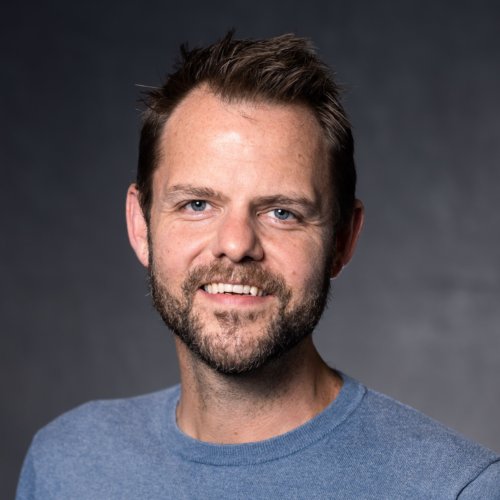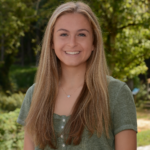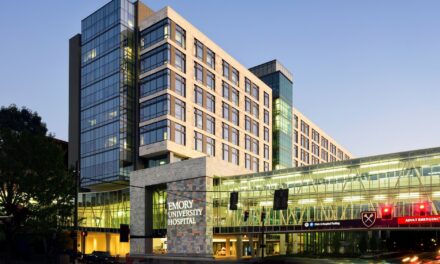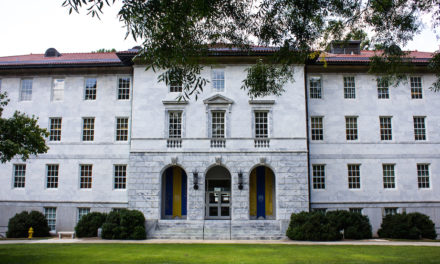Associate Professor of Physics Justin Burton was standing in line to check out at the grocery store when he received an email that the Gordon and Betty Moore Foundation awarded him a prestigious Physics Investigators Initiative grant for $1.25 million.
“My jaw dropped,” Burton said. “I walked out of the grocery store feeling pretty good.”
The five-year grant is intended for those who have received tenure and want to pursue new research, according to Burton. He added that the foundation has supported “fundamental science” since 2000.
Burton underwent a two-stage process to apply for the grant, beginning in November 2022 with a short page outlining what he planned to accomplish. He then wrote a longer, more detailed proposal and was selected as a winner in June, but Burton said he had to keep the news a secret until Aug. 23, as requested by the Gordon and Betty Moore Foundation.
He officially began the research in his lab on July 1, assisted by four undergraduates and six full-time graduate students.
There is generally much more funding for biomedical science rather than physics, which makes the award particularly exciting, Burton said.
With the grant, Burton wants to investigate how “we understand the shaping of Earth’s soft matter landscape.”
“A lot of the Earth’s landscape is made of mud, soil, debris flows, all kinds of other things — basically, granular type materials that are loosely bound together, or maybe immersed in a fluid,” Burton said. “That’s really the dominant source of the ground that we live on.”
Burton explained that physics works to develop theories about and tools for soft matter materials. He said he aims to apply soft matter physics — which can be perfectly ordered and precise in a lab — to more disordered, real-life geophysical situations.
In the past, Burton has researched the physics of icebergs and ice flow.

Associate Professor of Physics Justin C. Burton received a $1.25 million Moore Foundation Award for his work in physics. Courtesy of Emory University
Burton completed his doctoral degree in low-temperature physics at the University of California, Irvine. He then did biophysics research at the Fred Hutchinson Cancer Research Center for a year before completing his post-doctoral training at the University of Chicago. He joined the Emory University community in 2013 as an assistant professor in the physics department.
Stefan Boettcher, who chairs the physics department and has worked closely with Burton over the past few years, called Burton’s research designs “incredibly innovative.”
“His scope of thinking is very, very broad and cross-cutting, and I think that expresses itself in the recent recognition he has received,” Boettcher said.
The Gordon and Betty Moore Foundation is the second grant Burton received in the past year, the first of which was a $1.2 million Sheldon and Caroline Keck Award in January in collaboration with Associate Professor of Physics Minsu Kim. The award, which recognizes excellence among conservationists, is the first the Emory College of Arts and Sciences has received, according to Boettcher.
Senior Associate Dean for Research and Samuel C. Dobbs Professor of Biology Anita Corbett called Burton a “huge rock star” in his field.
“Dorkily, I would say, I have been a fan of his science long before I had anything to do with being in this job,” Corbett said.
Corbett added that Burton is an “incredibly creative scientist” but maintains a humble nature.
“He’s super down-to-earth,” Corbett said. “You wouldn’t necessarily know that he’s gotten these extremely prestigious awards.”
Burton’s investigations directly relate to projections of the feedback loop of ice sheets, sea level rise, the sun’s reflection off of Earth’s surface and the changing climate. He focuses on ice loss and how scientists think about the flow of glacial ice over the polar regions of the planet.
Additionally, Burton is investigating what controls the failure points in granular materials, like when a hillside collapses, and why they occur over time.
Burton has multiple other involvements on campus independent of the grant, such as leading the campus in environmental activities and sustainability, according to Boettcher. He also runs an after-school science club for elementary school students.
The Atlanta Science Festival includes Physics Live!, in which Burton helped to set up a large demo and planetarium show in the Mathematics and Science Center atrium pre-pandemic. PhysicsLive! has since been shifted to Piedmont Park, according to Burton.
Burton emphasized the broadness of physics and its large scope of influence that could appeal to anyone.
“It doesn’t have to be some little piece of sample that took you weeks to make,” Burton said. “It can be what it is when you look out the window. It can be the wind blowing and the soil moving and the water flowing. It really is anything that excites your curiosity.”
Alina Glass (she/her, 26C) is from Baltimore, Md. She is double majoring in psychology and anthropology. Apart from writing for the Wheel, Alina is the public relations chair for Circle K, a writer for the Association for Women in Science newsletter and a volunteer for Sprouting Readers. When she is not writing for the Wheel, Alina loves to run, bake and spend time with friends and family.






